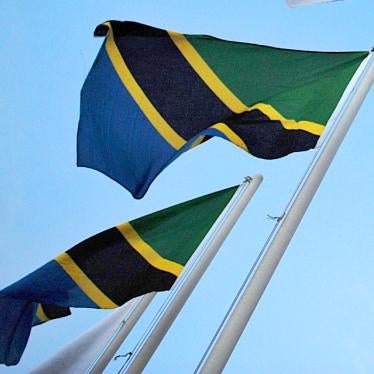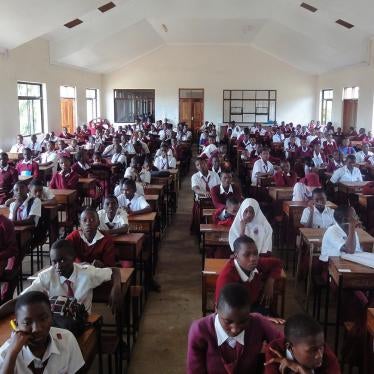I met Farida, a widow, and her seven children on a gold processing site for small-scale miners in Tanzania. The air was thick with dust mixed with particles of the metal and mercury - byproducts of the mining process. A thin layer of white powder settled on my arms and face. Some of my colleagues started to cough heavily. Large ball mills - machines used to crush gold ore into powder - made unbearable clanging noises.
Two of Farida’s teenage sons were preparing gold ore for the ball mill by crushing it into pebbles with large rocks, narrowly missing their fingers with each strike. Farida kept some of her children out of school so they could mine enough gold to support the family. I wondered what it must be like to be one of Farida’s children, trapped there nearly every day.
Farida’s older sons described their long, exhausting days. The 13-year-old, Rahim, had never been to school, and spent his time digging in deep, unstable pits - which frequently collapse on miners in the area - and transporting and crushing heavy sacks of gold ore.
Amani, the eldest at 15, had recently learned how to extract the gold using mercury. He carefully mixed and swirled the ground gold ore, water and silvery liquid mercury in a basin using his bare hands. Once the mercury and gold combined, I watched in alarm as everyone gathered closely around the trader who was burning the resulting amalgam. The mercury vapour released in this process is incredibly toxic and can have dire health implications, especially for children. How much of these fumes had the family inhaled over the last few years?
In the course of researching a new report for Human Rights Watch, “Toxic Toil: Child Labor and Mercury Exposure in Tanzania’s Small-Scale Gold Mines”, my colleagues and I interviewed 59 other children working in similar conditions. Sadly, their stories are not unique in Africa’s gold-producing countries. The continent is home to hundreds of thousands of small-scale gold miners, many of them children, working to support themselves and their families. While small-scale gold mining can play a positive role in many countries’ economic development, in most places the industry remains largely unsafe and unregulated. In the last few months there have been reports of mines collapsing in Ghana, Central African Republic, and South Sudan, killing at least 77 people.
Like Farida’s family, most small-scale miners use mercury to process the gold. Mercury is released into the atmosphere and nearby water sources, contaminating the environment and poisoning mining communities. Mercury can cause neurological problems and may affect the cardiovascular, respiratory, and central nervous systems. Although many African countries have laws to regulate the mercury trade, these haven’t stopped the use of this metal in mining.
A golden opportunity
Many gold-producing African countries are experiencing a new era of growth in their mineral sectors. This offers a critical opportunity to transform the currently small-scale gold mining industry. A fundamental part of that process should be to eliminate child labour in mining. It is going to require a concerted effort from many stakeholders. The Tanzanian government and other gold-producing African countries should enforce what laws they have prohibiting children from entering the mines and sanction employers who hire children in violation of the law. They should also include orphans and other vulnerable children in mining areas in programs that offer income or in-kind support, or that increase their access to education and health care.
Donors involved in development programs should support these efforts, promote alternative livelihoods and initiate programs that withdraw children from the mines and which reduce mercury exposure in mining communities. Gold refiners and traders should ensure their supply chains are “clean” and free from child labor by regularly monitoring and visiting the mining sites where they source their gold.
Countries also need to minimize exposure to mercury for everyone involved in small-scale gold mining. In October governments should sign the new Minamata Convention - an international mercury treaty that, amongst other stipulations, requires governments to develop plans to eliminate the most harmful forms of mercury use, protect children and women of childbearing age from mercury exposure, promote mercury-free mining methods, and take steps to improve the health of miners.
As small-scale gold mining expands in countries like Tanzania, the number of children involved in mining is also likely to grow. The continent needs to do more protect Farida’s family, and others like them, from a lifetime on a dusty, toxic mining site.








